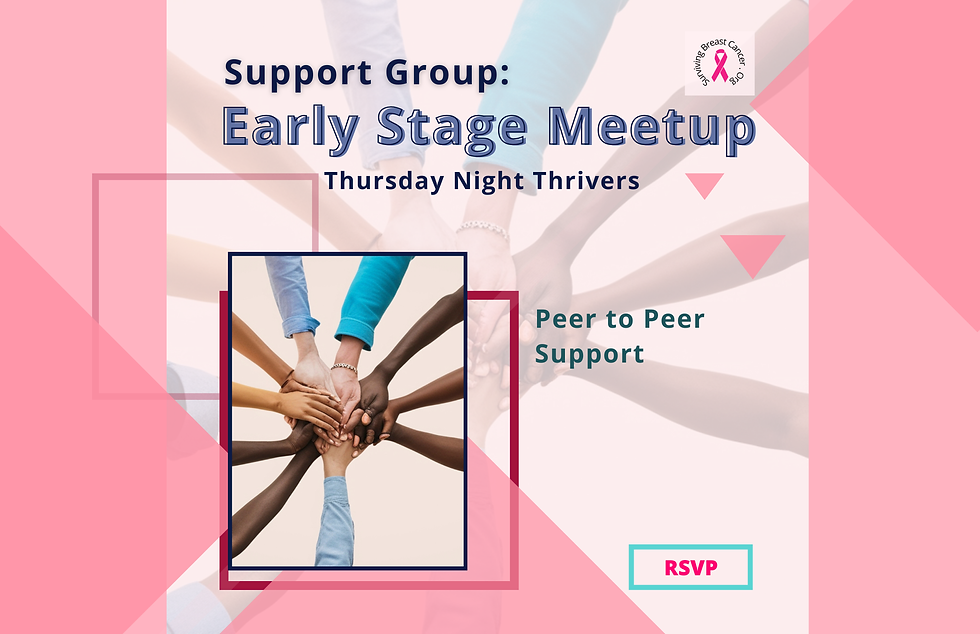Genetic Testing for a Predisposition Toward Breast Cancer
- Surviving Breast Cancer

- Aug 7, 2022
- 3 min read
Updated: Nov 3, 2025
A Phenomenological Study, Utilizing Bounded Rationality, Explores the Decision-Making Processes Associated with Genetic Testing for a Predisposition Towards Breast Cancer
The complicated nature of genetic testing requires breast cancer medical professionals and those diagnosed with breast cancer to explore multiple outcomes with the understanding that optimal solutions may not be available, thus requiring them to select among lacking options and make good decisions based on incomplete information within the context of unknown and dynamic variables. Through the lens of bounded rationality, the findings reveal that complex decision-making evokes strong emotions and requires those diagnosed with breast cancer to incorporate a combination of strategies and processes as they maneuver through both linear and non-linear paths for acquiring information, seeking alternatives, and making decisions.

Purpose
The purpose of this study was to explore how those diagnosed with breast cancer navigate the decision-making process associated with genetic testing.
Research Question: What are the main characteristics of rational choice among those who have been diagnosed with breast cancer (or are at a high risk for developing breast cancer) in situations where complexity precludes individual implications?

Descriptive Phenomenology
Phenomenology is both a philosophical practice and a psychological scientific method. Grounded in the works of Kant & Hegel, Husserl became known as the modern-day founder. Phenomenological research acknowledges that there is a need for understanding a phenomenon in order to improve practice. Husserl asserts that the aim of phenomenology is the rigorous and unbiased study of things as they appear. It provides a deeper understanding of lived experiences by making evident the taken-for-granted assumptions of the phenomenon and allows the researcher to adopt an understanding of how the phenomenon presents itself to the participants’ consciousness. Specifically, descriptive phenomenology as an application is pre-transcendental and focuses on how human consciousness relates to the human world.
Data Analysis
Critical sampling
Participants – Women diagnosed with breast cancer
Open-ended interviews, 60-90 minutes, recorded and transcribed
Delineating units of meaning
Cluster and categorize themes
Structural analysis and expressions
Creating the essential structure
Phenomenological reduction
Bracketing
Memo-ing
MAXQD
Themes
Outcomes-Based Decision-Making
Surgical Options; Impact on Family
Group Decision-Making
Collaboration with spouse; Collaboration with doctors; Collaboration with offspring and relatives
Emotional Orientation
Psychological, Emotional, Stressful, Unexpected
Procedural Strategies
Collection of information; Processing of information
Findings
Complex decision-making processes stem not only from the complexity of genetic testing, but also from the information (or lack thereof) that the person has at the beginning of the investigation, i.e., at the time of diagnosis.
Complex decision-making involves a shift or alteration in emotion. This is captured from all of the participants as they describe their experience from wanting genetic testing wholeheartedly, to the aftermath and long-term effects, i.e., living with knowledge of the results (which can’t be reversed).
Complex decision-making can be both linear and non-linear, resulting from the outcome of the genetic test.
Findings in Relation to Practice
Assist medical professionals in understanding the interconnectivity of linear and non-linear processes associated with complex decision-making as they endeavor to advise their patients on genetic testing.
Assist practitioners in understanding the emotional and psychological impact of genetic testing and complex decision-making when perfect or complete information is not available.
Listen to the stories of those who participated in the study. Coming Soon on the Breast Cancer Conversations Podcast.










